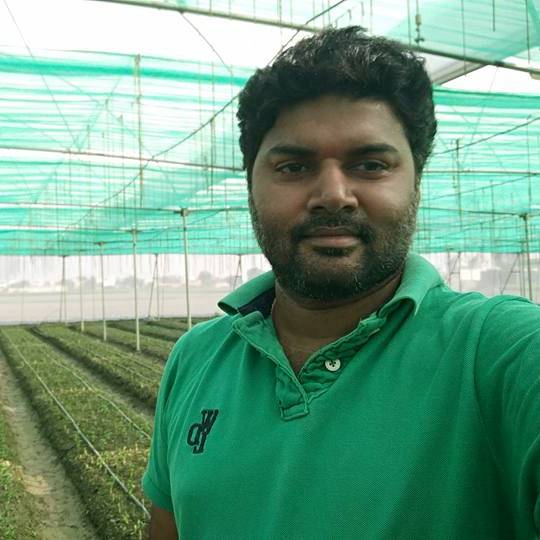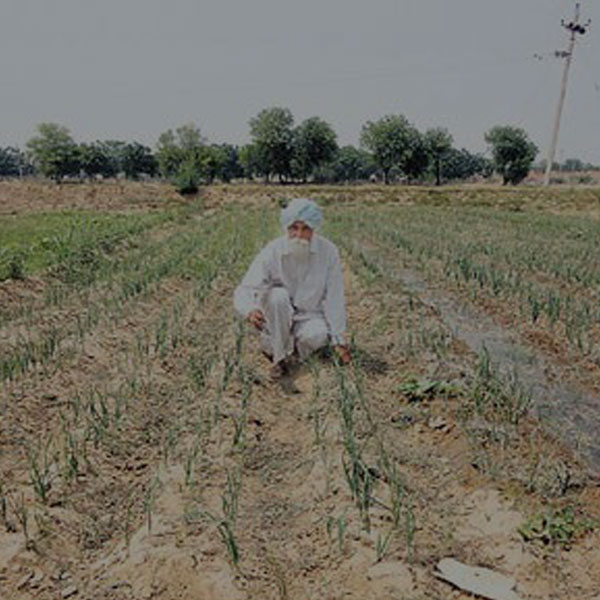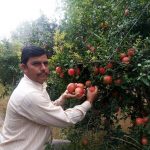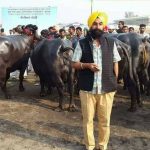Corn King of Punjab
Jagmohan Singh Nagi is an avid farmer and food producer who hails from Batala, Punjab. His father was a factory mechanic and always wanted him to get into the food industry. Kulwant Nutrition started in 1989 with a single plant and a small batch of corn and is now a thriving business with annual sales more than Rs 7 crore.
Contract farmer Jagmohan (now 63) cultivates 300 acres (about half the area of Central Park in New York City) of land, growing corn, mustard, wheat, and various vegetables such as carrots, cauliflower, tomatoes, and beets. For this he is associating and working with 300 farmers in the Indian states of Punjab and Himachal Pradesh, supplying food to companies such as PepsiCo, Kellogg’s and Domino’s Pizza. Outside the US, he also ships to the UK, New Zealand, Dubai, and Hong Kong. Years before the partition, he and his family were Karachiites.
Before settling in Punjab, Mr Nagi, Jagmohan’s father, moved to Mumbai with his family. Despite the widespread need, there was an acute shortage of technicians to maintain the grain mills. Because of this, his father jumped at the chance. One of Jagmohan’s father’s goals was to get his son a job in the restaurant business. However, he went to Birmingham University in the UK to study grain milling and grain/food engineering as there were no suitable programs in Punjab at that time. Back in India, he established Kulwant Nutrition Farm. Things did not go well at first as he struggled to harvest enough corn without help. However, at that time there was not a good corn crop in Punjab, so their factory collapsed. Therefore, despite the astronomical cost of shipping from there, he started buying corn from the neighbouring state of Himachal Pradesh. He then worked with Punjab Agricultural University to connect the school with businesses to ensure a successful harvest. The institution has provided high-quality seeds to farmers, and Mr. Nagi said he often buys agricultural products from these farmers. There is an old saying that effort is never wasted. Kellogg’s was his first customer.
In 1991, Jagmohan started working as a contract farmer trying to learn how to farm on his own. Mr. Jagmohan began working at PepsiCo in 1992, producing corn for the Kurkure snack. He says he needed about 1,000 tons of corn a month. He has also been supplying Domino’s Pizza since 1994. Mr Jagmohan started growing and producing vegetables and other preserves in 2013.
Although his farming business was thriving, COVID presented several challenges. When the pandemic broke out, the supply chain was immediately affected by COVID. Grocery stores have remained open, although many other businesses have closed because they are considered a basic service. Therefore, Jagmohan Singh focused on basic products such as organic corn flour and wheat flour. He wants to cultivate mustard oil, grains and chia seeds.
His company employs 70 people and thanks to him, farmers and agricultural students receive free training. They teach farmers about the latest cultivation methods and profitable marketing strategies. He wants to spread his learnings from an anecdote, which explained that selling ghee and cottage cheese are more profitable alternatives to selling milk.
As Jagmohan put it, “Government must nurture and promote agricultural enterprises at the local level” if it wants to encourage young people to enter farming. Food and agricultural technology are also to be supported. He advises farmers that strictly following instructions is the best way to achieve good results and avoid financial losses. Instead of following trends, farmers should carefully select the crops that will grow well in their area. A step will greatly improve their bottom line.
Message for farmers
Being a farmer himself, Mr Nagi encourages other farmers to learn as much as possible and try new things. Those who cultivate the land must prioritize profitable crops. Millet, vegetables, and fruit trees should surround these fields. Instead of selling raw milk, he advises farmers to process the milk into products like barfis and other Indian sweets.











